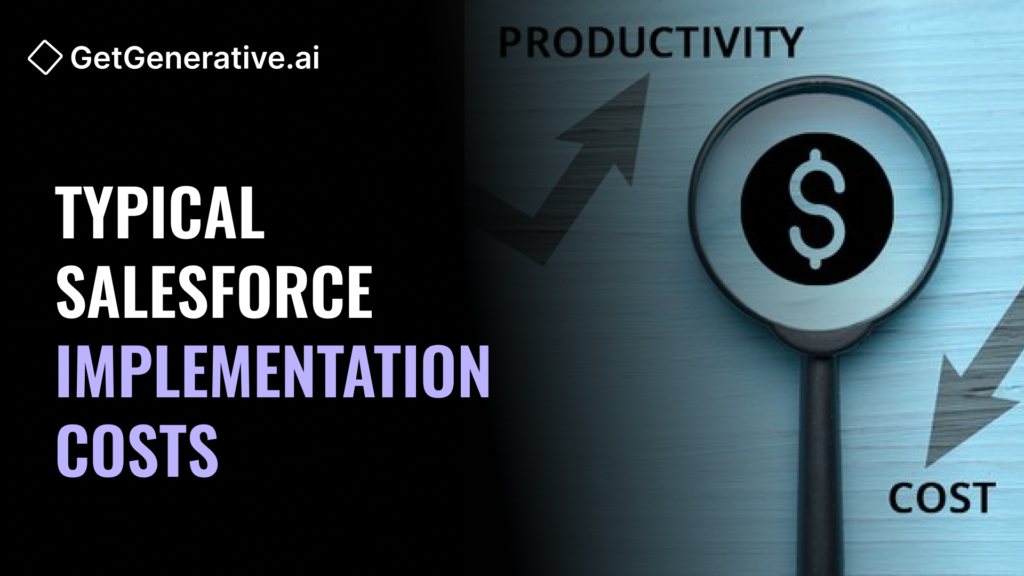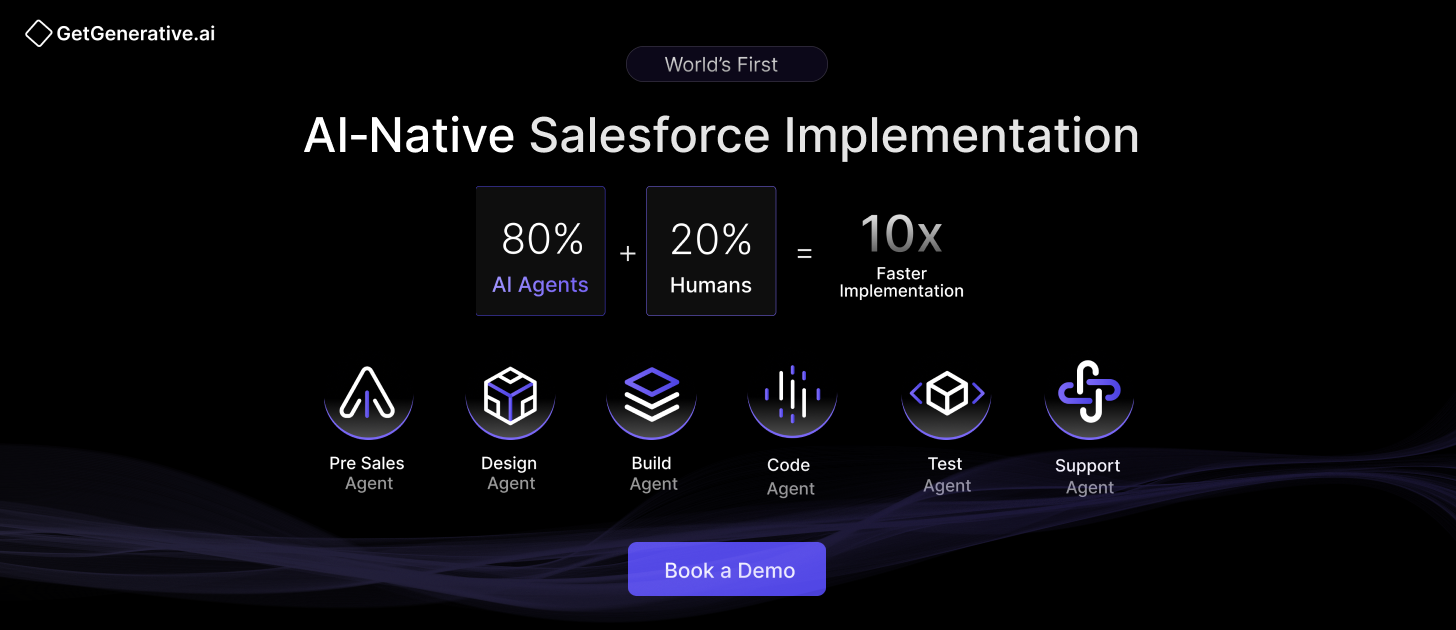Typical Salesforce Implementation Costs: Complete Pricing Guide
Understanding the true cost of Salesforce implementation has become a top priority for executives. As Salesforce continues to evolve with advanced AI capabilities, expanded cloud offerings, and extensive customization options, organizations must plan strategically to maximize ROI.
Based on market research and industry data, Salesforce implementation costs today range from $15,000 for basic small business deployments to $500,000+ for complex enterprise rollouts.
However, this is just the starting point—the total investment extends well beyond setup fees, including licensing, customization, data migration, integration, training, and ongoing support. Each of these factors can dramatically influence long-term costs and business value.
Current Market Landscape and Key Cost Drivers
Salesforce Pricing Update
In August 2025, Salesforce introduced a 6% average price increase for Enterprise and Unlimited editions across Sales Cloud, Service Cloud, Field Service, and select Industry Clouds. The increase reflects Salesforce’s growing investment in AI capabilities, including Agentforce autonomous agents and expanded Einstein features.
- Starter/Essentials Edition: $25/user/month
- Professional Edition: $80/user/month
- Enterprise Edition: $165/user/month
- Unlimited Edition: $330/user/month
- Einstein 1 Sales Edition: $500/user/month
This pricing shift impacts new customers immediately and existing customers upon renewal, making cost forecasting more crucial than ever.
Implementation Cost by Company Size
Costs scale significantly depending on the number of users, customization, and business complexity:
Small Businesses (1–50 users)
- Basic setup: $15,000–$50,000
- With moderate customization: $30,000–$100,000
- Timeline: 2–4 months
Medium Businesses (51–200 users)
- Standard implementations: $50,000–$150,000
- Complex rollouts: $100,000–$250,000
- Timeline: 3–6 months
Large Enterprises (200+ users)
- Comprehensive implementations: $150,000–$300,000
- Multi-cloud, highly customized: $200,000–$500,000+
- Timeline: 6–12 months
Comprehensive Cost Components
Salesforce implementation involves multiple stages, each carrying distinct cost implications:
- Discovery & Planning (10–15%): Requirements gathering, solution architecture, and project planning. Companies investing properly in discovery often save 15–20% overall by avoiding scope creep.
- System Configuration (35–45%): Setup of org, user profiles, permissions, and standard objects. This is typically the largest cost driver.
- Custom Development (20–30%): Apex code, Lightning Web Components, and custom workflows. Developer rates in the U.S. range from $130–$180/hour.
- Data Migration (10–20%): Costs: $10,000–$50,000, depending on data quality, cleansing, and mapping needs.
Consulting Partner Rates
U.S. hourly rates:
- Salesforce Admin: $100–$140
- Salesforce Developer: $130–$180
- Solution Architect: $180–$250
- Technical Architect (CTA): $250–$400
- Project Manager: $140–$200
Hidden Costs & Budget Overruns
Industry data shows that 60–70% of implementations exceed initial budgets, largely due to underestimated scope. Common hidden costs include:
- Integration complexity: Middleware tools like MuleSoft can add $50,000–$200,000.
- Training & change management: Inadequate training often leads to adoption challenges, requiring 15–20% additional investment.
- Ongoing support: Typically 15–25% of the initial cost annually, whether via internal staff or external managed services.
Also Read – How to Streamline Salesforce Implementation Without Increasing Costs
ROI Analysis and Business Justification
When executed properly, Salesforce implementations deliver exceptional ROI. Industry benchmarks show an average 299% ROI over three years.
Revenue Benefits
- 37% boost in sales productivity
- 25% shorter sales cycles
- 15% more accurate forecasts
- 20% higher average deal size
Cost Reductions
- 25% drop in IT operational costs
- 26% workforce productivity increase
- Lower customer acquisition costs through marketing automation
- Reduced infrastructure expenses due to cloud deployment
Payback Period: Most organizations achieve positive ROI within 12–13 months. Large, complex enterprise projects may take longer, but streamlined methodologies increasingly shorten payback cycles.
Implementation Timeline and Project Phases
The timeframe for a Salesforce implementation varies based on organizational size, scope, and complexity.
Small Business Projects (2–4 months)
- Pre-implementation planning: 2–4 weeks
- Data preparation & cleansing: 1–2 weeks
- Configuration & customization: 4–6 weeks
- Testing & user acceptance: 1–2 weeks
- Training & go-live: 1–2 weeks
Enterprise Projects (6–12 months)
- Pre-implementation planning: 1–2 months
- Data preparation & migration: 1–2 months
- Configuration & customization: 2–4 months
- Integration development: 2–3 months
- Testing & user acceptance: 1–2 months
- Training & change management: 1–2 months
Critical Success Factors
Research highlights several factors that determine cost control and successful outcomes:
- Stakeholder Alignment: Strong governance frameworks reduce scope changes and budget overruns by 30%.
- Data Quality Management: Clean, structured data avoids expensive remediation during migration.
- User Adoption Strategy: Organizations with robust change management see 40% higher adoption rates, translating into faster ROI realization.
Also Read – Salesforce CRM Implementation With AI – The Ultimate Guide
Cost Optimization Strategies
1. Phased Implementation
Rolling out Salesforce in phases allows businesses to prioritize critical functions first and gradually expand. This staged approach lowers upfront costs and reduces risk.
2. Pre-Built Solutions
Using QuickStart packages and AppExchange apps can lower custom development costs by 40–60%.
3. Optimized Licensing
Not every user requires the Enterprise or Unlimited edition. Carefully mapping roles to license tiers can save 20–30% on annual costs.
4. Geographic Cost Arbitrage
Leveraging offshore or nearshore consultants for non-critical tasks can cut rates by 30–50%, though coordination overhead must be managed.
Vendor Selection & Negotiation
Implementation Partner Selection should be based on:
- Industry expertise & certifications
- Global vs. local delivery model
- Track record with similar organizations
- Post-go-live support capabilities
Negotiation Strategies can reduce overall costs by 15–25% through:
- Fixed-price contracts with clear scope
- Volume discounts for multi-cloud commitments
- Bundled service pricing
- Performance-based payment models tied to adoption metrics
Also Read – Salesforce Implementation Showdown: AI vs. Traditional Methods
Conclusion
Salesforce implementation costs are more than a technology investment; they represent a strategic business transformation. By moving beyond cost-cutting and focusing on value optimization, executives can unlock Salesforce’s full potential for growth, innovation, and competitive advantage.
At GetGenerative.ai, we’ve reimagined Salesforce implementation—AI-native from the ground up. This isn’t legacy delivery with AI added on, but a faster, smarter, cost-efficient approach powered by our proprietary platform.
By automating 80% of the project lifecycle with intelligent agents, we deliver lower-cost implementations without compromising quality or scalability.
👉 Explore our Salesforce AI consulting services




